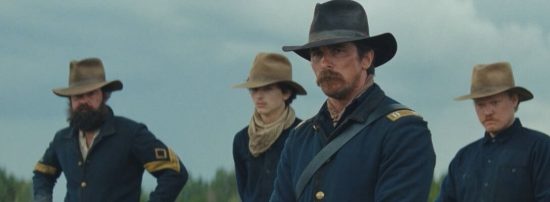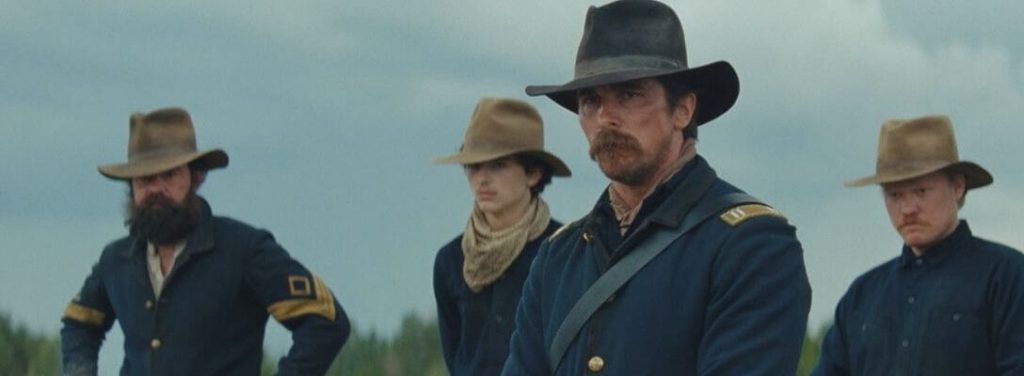Films attempt to entertain, but at the same time, pass different messages on the historical foundation of the United States as well as other nations depending on the author’s selection. When compared to existing literature, films either reinforce or negate the various ideas explored by authors; hence, one needs to analyze information using the various available sources. Hostiles, a 2017 film, attempts to reflect on the different challenges encountered by people when trying to safeguard their families or reunite with their motherland, which makes them form a resistance, negotiate their way out of trouble or tolerate hardships. The film shows a critical perspective of the Cheyenne Northern settlers and the coming together of enemies for a common goal. Through a critical review of the movie Hostiles,’ this essay seeks to relate the information with real anthropology information.
One of the main lessons from the film is the idea that native people have been through difficult circumstances as they attempt to reclaim their territories, settle in an area, or maneuver through their land. Bartrop (2007) maintains that the peace of the American people relies on the response of the natives to the different wars or attacks by groups looking to possess their land or make a statement on the dominance. The implications, together with the lessons from the film, support the idea that the native American communities suffered significantly before the realization of a system that promotes the rights of all citizens equally. Dunbar (2011) indicates that the natives in America struggled to end the local fights among them and creating wealth, but also struggled with slavery and establishing their rights when interacting with leaders. The film portrays Joseph Blocker as a disgruntled individual with no choice but to obey the instructions of his leader despite the trauma from the previous war experiences.
Relating the film to the topic of freedom, it is clear that the Cheyenne community believes they have profound liberties allowing them to make decisions on where to settle or when to move around. However, the challenge of Joseph Blocker being forced to escort the Cheyenne chief, with the pension as the ransom, is an indication of the lack of freedom for the Native Americans and other groups. Independence and identity go hand in hand as the Native American groups were keen on presenting their ideas to the chief but at the same time, chaining the black slaves together, which is significant of the lack of autonomy. Smolenski (2005) argues that it is surprising to see the majority of the aggrieved parties in the colonial U.S. prefer death instead of enslavement, in a bid to establish or preserve their identity and freedom. In developing their identity, the Cheyenne people believed that war is a crucial tool; however, they realized the need to provide freedom to their captives and build an alliance. On the comparison of the film events and literature on anthropology, it is transparent that finding the freedom to decide and settle in an area was a limited choice for the early settlers in America.

A relationship of the film with anthropological studies reveals that the military talked about their ideas during heart-to-heart interactions around the campfire compared to official duties where they were required to be tough. Lee (2001) reflects on the trauma faced by military men and how society expects them to show bravery despite these issues and how conversations about their challenges affected their behavior. From the film, it is clear Blocker is uncomfortable with escorting the Chief, and he clearly expresses his sentiments to Metz, but through blackmail, he is sent on the mission, and he has to toughen up and protect his group. He goes ahead and works for his enemy, the Cheyenne chief, despite making it clear to his friend that he is uncomfortable with the situation as they are sworn, enemies.
Dull Knife and Little Wolf come off as heroes in supporting their community to safeguard the land when the government was trying to resettle these groups in Oklahoma (Hill, 2013). Similarly, Blocker emerges as a hero for the community as he leads them through the warzones to go back to their motherland; this is a reflection of the reality of the situation as it happened in the past. Having a film that reflects the actual circumstances makes it clear of the horrendous experience by the military and communities and how their personal and communal values helped them survive the issues. Besides, Hill (2013) highlights that the cities in America are classified as either assimilated or founded on the resistance of the groups; however, many narratives affected the affected societies.
One of the most disheartening issues in the film is the emphasis on death for several of the cast members, who are either suffering from an illness or affected by the killings throughout their journey. At the beginning of the film, Blocker is conversing with Metz, who, after many years of service, is suffering from melancholia; Yellow Hawk is also dying from cancer despite the other odds against their movement to the Montana Valley. The film is a representation of the challenges of settlement in the early years but also emphasizes the emergence of new diseases in the past, that significantly wiped out the population. The growth of the healthcare sector in America relies on the discovery of the many diseases and seeing how much of the population suffered due to the illnesses (Raghupathi & Raghupathi, 2018). While that is the reality, combining the suffering of the communities by airing how the wars affected them as well as the diseases are nothing to celebrate about the film as it exaggerates the emotions of sadness.
One of the additional information necessary to make the film better is the presentation of an in-depth depiction of the relationship between Blocker and the Cheyenne Chief; as the film reveals, they are enemies. However, there is missing information on what started their strained relationship and how they have managed to interact in the past until the moment when they set out for the travel. The Chief blackmails Blocker to the extent of risking his life in the voyage as he understood the risks of the journey and the experience of the latter during his missions as a military man.
Relating the film to information on the experiences of early settlers in America, it is clear that savagery was the best approach to dealing with situations and establishing authority as all parties in the past sort to create their autonomy. Allen (2014) discusses that no fair leader survived the challenges of dealing with their subjects or passing unpopular orders to the community; savagery proved vital in establishing authority and getting things done. Borrowing from the readings, the film explores how the cities were savage, slaughtering each other, including children, in a bid to establish a sense of authority. When Blocker was not willing to cooperate by removing the chains from his captives, the killings from the enemies pushed him to decide to release them to assist in the fights.
The film is a reflection of the struggles of different communities trying to unite with their ancestors in different areas, and it sparks feelings of concern on whether the current generations appreciate the sacrifices of these groups. The contemporary environment reflects significant respect for the military and an intense level of freedom where individuals can move from one area to the other to reunite with their families. Monnet (2012) infers that tragedies such as 9/11 are a strong reflection on the respect for the military service and the importance of war in the past to improve the situation in America. Similarly, Hostiles shows respect for Blocker for his skills, despite the coercion to participate in the journey and the support of his community despite the repercussions of his decisions. Similarly, modern literature reflects that the authority granted to the military is paramount, and their jurisdiction is unquestionable as long as it aligns with the constitution.
The film reflects a deep sense of kinship and how life experiences change the thinking pattern of the affected persons; Rosalee Quaid is an example of a gentlewoman who turned brave through the loss of her husband and children. ‘Hostiles’ reflects on the love expressed by Blocker towards his troop and Black and Yellow Hawk despite the strain in their relationship, as they protect each other. The kinship is an expression of positive family values associated with the Comanche natives, and the principles are a sense of hope amid all the war affecting the community. In the past, women’s roles during the war proved crucial in holding together the family unit and integration of the people, and these were valuable standards in keeping the people tightly knit for better outcomes during the war (Leonetti & Chabot-Hanowell, 2011). Similarly, the kinship ties between the community members in the film improved their unity when fighting the enemies, including the release of their captives to assist and taking Roslee on the journey after her traumatic experience.
In conclusion, it is clear that ‘Hostiles’ shows the building of the Northern Cheyenne and how the members of the community supported each other to preserve their ancestral land and values. Anthropology literature shows that they strive for identity and inclusion called for significant understanding of the freedom levels and toughness among the leaders to execute their orders despite the resistance. Besides, the suffering of the Cheyenne community comes off from the film and the stressful experiences of the military, including being blackmailed into escorting the Chief. The film, however, focuses on death, either through disease or violence, which gives the impression that that was the theme of the people in America in the past, although they had other good experiences. However, the values of kinship make the film very interesting as they remind the community of the need for communism to bring together human resources for the benefit of the people.
Peachy Essay essay services provides a wide range of writing help including book and film reviews.







